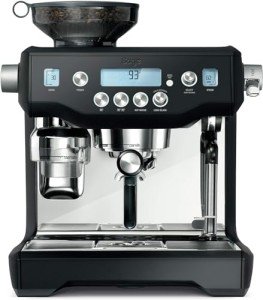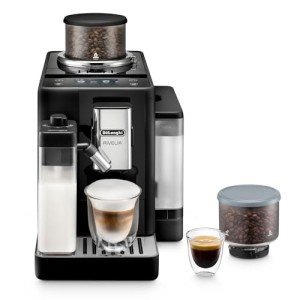이야기 | 10 Reasons Why People Hate Espresso Coffee Maker
페이지 정보
작성자 Merle 작성일25-11-19 22:46 조회5회 댓글0건본문
The Espresso Coffee Maker: A Deep Dive into the World of Quality Coffee
Espresso Brewer, the abundant, aromatic, and vibrant coffee brewed under pressure, has ended up being a preferred around the world. For coffee lovers, owning an espresso coffee machine can elevate their developing experience, supplying a café-quality drink right at home. This post will check out the different kinds of espresso coffee machine, their functions, aspects to think about when purchasing one, a comparison table for popular models, and some regularly asked questions.
Understanding Espresso Coffee Makers
Espresso coffee makers are available in different designs, each developed to deal with various requirements and choices. From manual machines for perfectionists to state-of-the-art models for those who value benefit, the landscape of espresso makers varies. Below are the primary kinds of espresso coffee machine offered:
Types of Espresso Coffee Makers
Manual Espresso Makers:
- Overview: These machines need the user to be hands-on in all aspects of the brewing process.
- Pros: Greater control over brewing parameters, more budget friendly than automated machines.
- Cons: Steeper knowing curve, more physically demanding.
Semi-Automatic Espresso Machines:
- Overview: These machines permit users to control the grind, tamp, and shot time while automating the brewing process.
- Pros: Balance of control and benefit, suitable for a vast array of users.
- Cons: More costly than manual designs.
Automatic Espresso Machines:
- Overview: These machines take over the brewing procedure completely, allowing users to choose the preferred volume for a couple of shots of espresso.
- Pros: Convenient and easy to use.
- Cons: Limited control compared to semi-automatic machines; greater expense.
Super-Automatic Espresso Machines:

- Overview: These machines automate the entire process, from grinding the coffee beans to frothing milk for lattes or coffees.
- Pros: Extremely practical and time-saving.
- Cons: Often the most costly choices.
Stovetop Espresso Makers (Moka Pots):
- Overview: While not "real" espresso makers, these enable amateur baristas to brew strong coffee on the stovetop.
- Pros: Affordable and portable.
- Cons: Less consistent pressure; does not produce the very same crema as standard espresso.
Secret Features to Consider
When searching for an espresso coffee maker, various features can influence a customer's optio
Philips 3200 SeriesSuper-Automatic15Single BoilerYes₤ 9004.5Moka PotStovetop MakerN/AN/AN/A₤ 404.3Buying an Espresso Maker coffee maker can enhance one's coffee-drinking experience, making it not simply a daily regimen, however a joyful routine. Each of the various types accommodates varying ability levels and preferences, which implies everybody can discover a suitable match. With the right info, anybody can pick a machine that fulfills their requirements, producing the ideal cup of espresso at home.
Frequently asked questions
1. What is the difference between espresso and routine coffee?
Espresso is brewed utilizing High Pressure Espresso Machine pressure to force warm water through finely-ground coffee, resulting in a concentrated shot with abundant taste. Regular coffee normally uses coarser grinds and a drip method, leading to a lighter brew.
2. Can I utilize regular coffee premises in an espresso machine?
Technically, yes; nevertheless, the espresso machine is developed for carefully ground coffee. Utilizing routine coffee premises might lead to weaker taste and insufficient pressure accumulation.
3. How often should I clean my espresso coffee machine?
Routine maintenance is essential. The majority of specialists advise deep cleaning each month, while day-to-day cleansing includes washing the group head, portafilter, and steam wand after each usage.

4. Are espresso coffee makers worth the investment?
If you take pleasure in Espresso Machine For Home or coffee drinks that require espresso, purchasing a quality espresso coffee machine can conserve cash in the long run compared to purchasing coffee from coffee shops, in addition to enabling you to try out different brews.
5. What's the perfect water temperature for developing espresso?
The perfect water temperature level is between 190 ° F to 205 ° F (88 ° C to 96 ° C). This temperature variety takes full advantage of taste extraction without burning the coffee.
With this extensive guide, readers can make informed decisions while checking out the world of espresso coffee makers. Accept the art of espresso making and change your home developing experience!
댓글목록
등록된 댓글이 없습니다.

